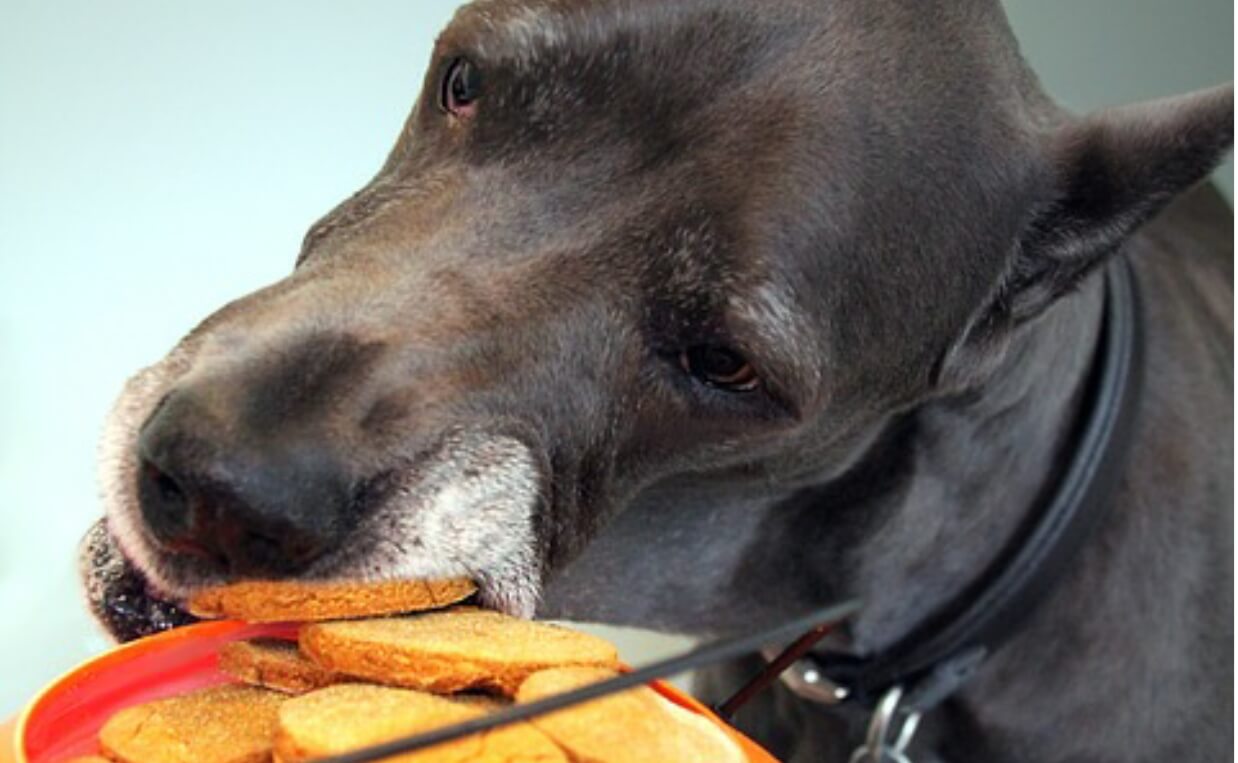If My Dog Pukddbecause Her Stomach is Empty Should I Feed Her

A temporary loss of appetite in your dog is not something to become immediately concerned about. Just like humans, sometimes dogs don't feel hungry or are stressed and don't want to eat. Diarrhea, vomiting, and a decreased appetite can make it challenging to ensure your dog is getting the right nutrients.
Signs Your Dog Has Lost His or Her Appetite
Signs of loss of appetite in dogs include:
- Eating less food than normal
- Refusing to eat at all
- Refusing to eat treats
- Lack of interest in food
- Trying but unable to eat
- Weight loss
- Weakness and lethargy
- Vomiting
Why Dogs Lose Their Appetite
Refusing to eat for more than two meals is uncommon for most animals. Loss of appetite is a serious indicator of an underlying illness, which can vary from depression to cancer. If you notice a change in your dog's eating habits, schedule an appointment with your veterinarian immediately. It is especially important to respond quickly to a refusal to eat in dogs who normally have a good appetite.

The most common reasons a dog will lose their appetite include:
- Illness
- Infection
- Disease
- Recovering from surgery
- Mourning a death
- Aging
- Stress
- Sudden change in diet
- Scavenging
- Eating human foods difficult for dogs to digest
- Motion sickness
- Eating too much
- Eating too quickly
- Ear or balance problems
Other, more serious reasons for a dog being sick include:
- Infection
- Worms
- Eating foreign bodies (such as socks or toys)
- Swallowing or licking plants or toxins poisonous to dogs
- Cancer
- Kidney or liver disease
- Pancreatitis

When Should You Contact Your Veterinarian?
If your dog is throwing up frequently or projectile vomiting, you should contact your vet right away. It's also a cause for concern if your dog can't keep water down or is vomiting bile, has blood or unusual material in the vomit or is showing signs of lethargy, depression, discomfort or bloating. If your dog is experiencing any of these signs, please contact your vet right away. Other reasons to call a vet include decreased urination, or a combination of severe bloating, diarrhea and abdominal pain.
If your dog has, or you suspect your dog has, eaten something they shouldn't have, such as chocolate, onions, garlic, macadamia nuts or raisins, call your veterinarian right away. If your dog is attempting to vomit but can't, it may be dangerous. This is a symptom of gastric dilatation volvulus (GDV), also called bloat, which can be life-threatening.
Read more: The Ultimate Guide to Foods You Can and Can't Feed Your Dog
What to Feed Your Sick Dog So He or She Will Feel Better
The idea for feeding a sick dog is to give your dog the nutrition he or she needs to recover. A bland diet can help dogs with mild upset stomach, including gas, nausea, constipation, and diarrhea. Be sure to rule out serious health risks and discuss your diet plan with your veterinarian. Also, dogs with health conditions like diabetes, cancer, allergies or senior dogs might need additional nutrition to stay healthy.

Once you have ruled out any major health issues with your vet, here are 10 foods you can feed your dog to help them recover and feel better.
-
Chicken and rice
Chicken and rice are primary ingredients in many dog foods, and these mild foods tend to work well for sick dogs. Use boneless, skinless chicken breasts and white rice. Do not use any oils, butters, or seasonings, not even salt. Be sure to cut or shred the chicken so your dog doesn't choke on the meat.
-
Shredded chicken
Shredded chicken is easy on an upset stomach and is usually a highly desirable food for dogs who have lost their appetite. Plain, unseasoned, boiled, shredded chicken is easy to digest. It also contains protein, essential vitamins, minerals, fats and amino acids that will help your pup heal.
-
Pumpkin
Pumpkin and sweet potato are good foods to feed a sick dog. These root vegetables are high in fiber and lots of vitamins and minerals and helps dogs' digestive systems. Adding pumpkin to your dog's meal helps with constipation. Veterinarians recommend you give your dog one to four tablespoons of pumpkin, depending on your dog's size. Canned pumpkin is convenient and easy to serve, as long as there are no added seasonings or ingredients. Do not give your dog pumpkin pie filling as the added spices and sugar can irritate your dog's upset stomach.

-
Bone broth
Bone broth is a very mild liquid high in nutrition, moisture and flavor. Bone broth is easy on dog's digestive systems and is healing. To make a bone broth, cook beef marrow bones, turkey or chicken bones. Cover the bones with water, cover and cook on low for 24 hours. Let the broth cool in the refrigerator and then scrape off the hardened fat on the top of the broth. Be sure to strain the broth and throw away all the bones. Cooked bones are dangerous for dogs as they can splinter in the digestive tract, possibly requiring surgery to be removed.
-
Baby food
Veterinary hospitals give dogs certain types of baby food to feed the dogs in their care. Baby food is easy to swallow and digest and is a great way to give oral medication. Baby foods such as chicken, lamb and turkey are good choices. Just make sure there are no added ingredients, such as garlic or onion powder.
-
Eggs
Eggs can be a great source of protein for sick dogs. They are easy to digest and dogs usually love them.

-
Oatmeal
Oatmeal is high in fiber and contains helpful nutrients, minerals and antioxidants. Oatmeal contains Vitamin B, which helps maintain a healthy coat and linoleic acid, which is a type of omega-6 fatty acid helpful for dogs skin. Just be careful to not feed your dog too much oatmeal because too much fiber can lead to an upset stomach. Also, make sure to cook the oatmeal in water as many dogs have a hard time digesting milk.
-
White fish
Sometimes dogs don't want to eat because he or she is suffering from pain or can't smell the food. Scent plays a big part in motivating dogs to eat, so something smelly, like fish, can encourage your dog to eat. Fish provides protein and key vitamins and minerals. Be sure to skin and debone the fish before you offer it to your dog.
-
Potatoes
Potatoes are nutrient rich root vegetables and provide important vitamins and minerals such as vitamin C, B6, iron and magnesium. Be sure to cook potatoes thoroughly and do not add any seasonings, even salt. It is best to peel potatoes before feeding them to your pup.

-
Plain yogurt
Yogurt is high in calcium and protein. It can also act as a probiotic, which can be good for your dog's digestive system. Be sure to only feed your dog plain yogurt, free of any sweeteners, especially artificial sweeteners.
Ultimately, your dog's health should always be discussed with your veterinarian. Consult your vet on what he or she recommends for your dog and based on your dog's symptoms.
What do you feed your dog when he or she experiences an upset stomach? What foods should be added to this list? Please comment below…
Source: https://www.caninecampus.us/10-foods-to-feed-your-dog-when-sick-with-an-upset-stomach
0 Response to "If My Dog Pukddbecause Her Stomach is Empty Should I Feed Her"
Post a Comment